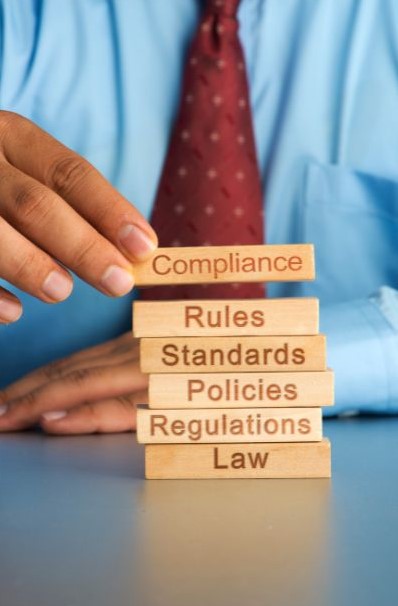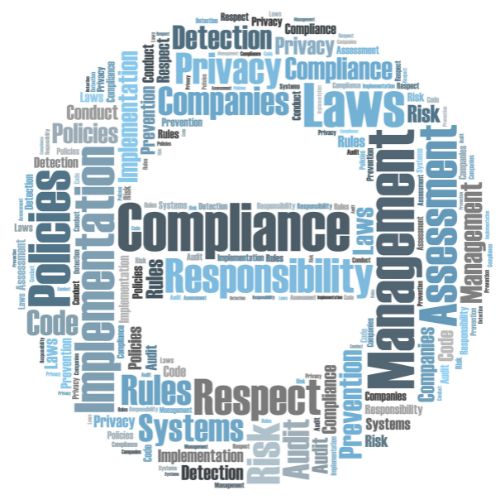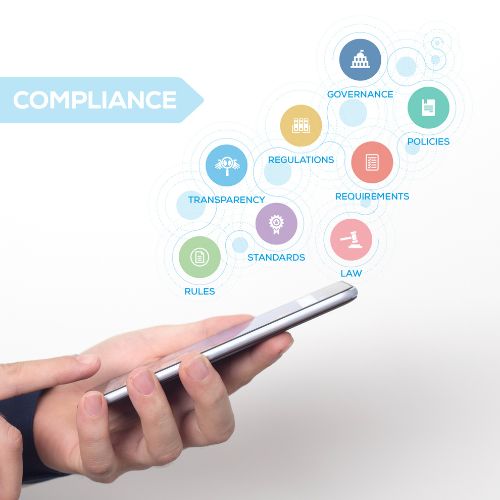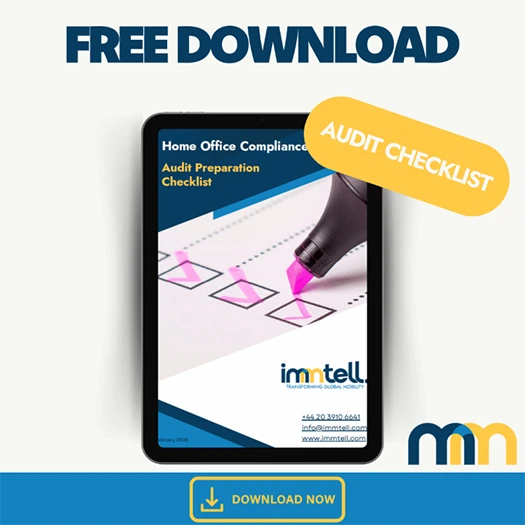The Real Risk of Sponsoring Overseas Workers in the UK (and How to Avoid Fines)
A plain-speaking guide for UK employers on what can go wrong and how to stay compliant.

Why UK Businesses Choose to Sponsor Overseas Workers
The UK labour market is under pressure. Skills shortages persist across various sectors, including tech, healthcare, pharmaceuticals, engineering, hospitality, and logistics. For many companies, sponsorship isn’t a luxury; it’s a necessity for meeting demand and staying operational.
Hiring overseas skilled workers can bring valuable expertise and help bridge workforce gaps. But with it comes a long list of responsibilities. If you are like many UK businesses we speak to, you probably didn’t realise just how serious those responsibilities are, until you get that email or letter from the Home Office.
The Real Risks Behind UK Visa Sponsorship
Many employers see sponsorship as an administrative process, paperwork, visas, and confirmation emails. But UK visa sponsorship is also a legal relationship between your business and the Home Office. You’re taking on a contract with the UK government.
And if you don’t hold up your side of the bargain? The consequences can be serious:
- Civil penalties of up to £60,000 per illegal worker
- Licence downgrades or revocations
- Damaged reputation and business disruption
- Difficulty sponsoring future workers
The biggest risk? Thinking you’re compliant when you’re not.
Top 5 Compliance Failures That Put You at Risk
Over the last year, we’ve helped dozens of UK companies recover from sponsor-related issues. These are the five most common mistakes we see:
1. Poor or Missing Right to Work Checks
Employers must carry out a compliant right to work check before the employee’s first day. Digital checks, manual copies, expiry dates. every detail matters.
2. Not Reporting Changes in Time
Change of job title? Promotion? Moved office? If you don’t report changes via the Sponsorship Management System (SMS) within strict timelines, it counts as a breach.
3. Inadequate Record-Keeping
You’re legally required to keep a wide range of documents, for example, contracts, attendance records, and proof of recruitment. Missing even one item can be enough to trigger a compliance breach.
4. Job Doesn’t Match the Role on the CoS
One of the most common “genuine vacancy” failures is when the job the sponsored worker is actually doing doesn’t match what was listed on the Certificate of Sponsorship (CoS).
5. Lack of Internal Controls
If HR and line managers aren’t on the same page, things slip through the cracks. That’s when sponsors get caught out, not through bad intent, but weak systems.
How the Home Office Investigates Sponsorship Breaches
When the Home Office decides to investigate an existing sponsor, they often give little to no notice. In some cases, you’ll be told a few days in advance. But some visits are unannounced.
Home Office Audits can take two main forms:
- On-site compliance visits, where officers turn up at your premises to review records, conduct staff interviews, and observe your processes in real time.
- Remote audits, where you're asked to submit key documents by email, followed by a video call, where the Home Office interviews key personnel and assesses your systems.
These checks may be triggered by a random selection, a concern raised by an employee, a system anomaly, or a history of poor compliance. However, they’re increasingly part of stepped-up monitoring in 2025.
Here’s what you can expect during an investigation:
- A detailed review of your right to work checks across your workforce, not just those you sponsor
- Requests for employment records, such as payslips, job descriptions, contracts, and recruitment documentation
- Interviews with staff, including Authorising Officers, Level 1 Users and often some of your sponsored workers
- Assessment of the genuine vacancy, including whether the job duties match what was listed on the Certificate of Sponsorship (CoS)
If they’re not satisfied, the Home Office can downgrade your licence, suspend it, or revoke it entirely.
And remember, if your licence is suspended or revoked, sponsored workers will have just 60 days to find a new sponsor or leave the UK. That’s not just their problem. It’s yours too, and will have an impact on business continuity.
.png?updated=1749800226)
The Financial Cost of Getting It Wrong
You may not receive a fine for a sponsor breach, but that doesn’t mean there are no costs. The damage often shows up in different ways: business disruption, legal bills, lost staff, reputational damage, and the inability to sponsor again in future.
Here are some real outcomes we’ve seen:
- Sponsor licence suspended after an audit revealed inconsistent right to work documentation
- Key skilled workers forced to leave after a licence revocation, with no time to transfer them to a new sponsor
- Significant legal fees incurred when trying to challenge enforcement action through a judicial review
- Operational delays and revenue loss after recruitment plans had to be paused for months
In the most serious cases, the business’s entire sponsor licence is revoked, and every sponsored worker loses the right to work. Even if there’s no fine, the commercial impact can be severe.
These scenarios are becoming more common as the Home Office ramps up enforcement in 2025. Sponsors who think their internal processes are “good enough” often find out the hard way that they aren’t.
Your Legal Duties as a Sponsor: A Recap
Being a sponsor means keeping the Home Office updated and holding proper records. Your legal duties fall into a few core categories:
- Monitor and report: Keep track of worker absences, job changes, and visa expiry dates. Report material changes within strict deadlines.
- Record-keeping: Maintain up-to-date copies of right to work checks, contracts, contact details, and recruitment evidence.
- Genuine vacancy: The role must be real, necessary, and match what’s on the CoS.
- Prevent illegal working: Conduct and keep correct right to work checks across your workforce.
This isn’t a one-time task. It’s ongoing, and the Home Office expects you to stay compliant even as your business grows.
Why Internal Policies and Right to Work Training Matter More Than Ever
We often see employers hand sponsorship off to one person, typically HR or operations. That’s where problems start. Sponsorship compliance needs to be a shared responsibility.
- Are your managers trained to spot warning signs?
- Does your HR team know how to carry out a valid right to work check?
- Are you running regular internal audits?
A single slip-up, even an untrained line manager failing to spot a visa expiry, can cost your company thousands.
What We’ve Learned From Supporting UK Sponsors
At Immtell, we support sponsors across multiple sectors, from care homes and tech firms to manufacturers and global engineering groups.
One tech firm came to us after receiving a warning notice. They were unaware that changes to job titles required reporting. We conducted a full internal audit, retrained staff, updated their systems, and helped them retain their A-rating.
Another client, a fast-growing SME, thought their HR system was logging visa expiry dates. It wasn’t. We worked with them to overhaul their tracking system and build a better process from the ground up.
We don’t just help fix problems, we help prevent them.

How to Protect Your Business From Home Office Fines
If you’re a sponsor, the safest thing you can do is thoroughly review your setup before the Home Office does.
Here’s where you can start today:
- Carry out a compliance audit: Review your systems, record-keeping, and reporting processes to spot gaps early.
- Train your teams: Make sure everyone involved — from HR to line managers understands their responsibilities.
- Use a proper tracking and notification system: Don’t rely on memory or spreadsheets to monitor visa expiries and reporting deadlines.
- Get expert input: Even if things seem fine, a second opinion can highlight risks you didn’t know were there.
Immtell offers two ways to help:
- Sponsor Licence Compliance Audit
A one-off review covering your HR systems, processes, and key documents. Includes a mock interview, gap analysis, and action plan to help you get audit-ready.
- Monthly Retainer Package
Ongoing support that includes real-time access to regulated advisers, right to work and sponsor training, monthly check-ins, and help with CoS preparation and assigning to mitigate errors, all for a fixed monthly fee.
When combined, these services provide the strongest protection, practical support upfront, and ongoing help to stay compliant over time.
Support That Pays Off: Immtell’s Compliance Programmes
Unlike many providers, we don’t just give you a checklist and walk away. We’ve worked inside the Home Office. We know how compliance officers think, and what they look for.
Our support includes:
- Real-time and on-demand training for HR teams
- Sponsor licence mock audits (remote or in person)
- Full documentation reviews and risk reports
- Direct access to regulated advisers
- Transparent fixed-fee pricing, no surprise bills
You’ll walk away with clarity, confidence, and a real plan to protect your licence.
Final Thoughts: Why You Can’t Afford to Guess
Sponsoring overseas workers can help your business thrive. But it’s not a case of “set and forget.” The Home Office doesn’t just expect you to try, they expect you to get it right.
If your systems aren’t tight, your records aren’t clear, or your teams aren’t trained, then you’re leaving the door wide open for trouble.
You don’t have to do it alone.
Need Support with a Sponsor Licence Audit? You’re in the Right Place
Use the pricing tool below to get a tailored estimate based on your needs. There’s no pressure and no hidden fees, just the information you need to plan properly. If it looks like we’re a good fit, we’re ready when you are.


Ready to protect your sponsor licence?
Take the first step today, book a no-pressure call or ask about our mock audit packages.
Take the first step today, book a no-pressure call or ask about our mock audit packages.














